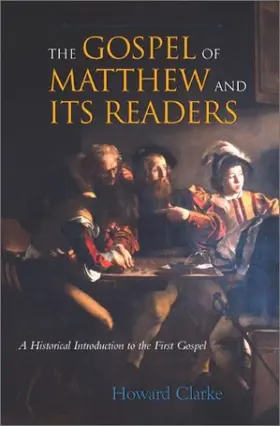

The Gospel of Matthew and Its Readers: A Historical Introduction to the First Gospel
The Gospel of Matthew and Its Readers is a biblical commentary with a difference. Howard Clarke first establishes contemporary scholarship's mainstream view of Matthew's Gospel, and then presents a sampling of the ways this text has been read, understood, and applied through two millennia. By referring forward to Matthew's readers (rather than back to the text's composers), the book exploits the tensions between what contemporary scholars understand to be the intent of the author of Matthew and the quite different, indeed often eccentric and bizarre ways this text has been understood, assimilated, and applied over the years. The commentary is a testament to the ambiguities and elasticity of the text and a cogent reminder that interpretations are not fixed, nor texts immutably relevant. And unlike other commentaries, this one gives space to those who have questioned, rejected, or even ridiculed Matthew's messages, since Bible-bashing, like Bible-thumping, is a historically significant part of the experience of reading the Bible.
